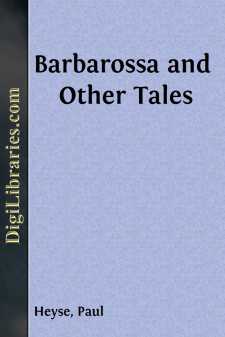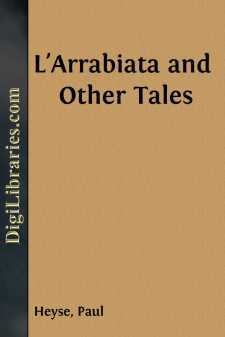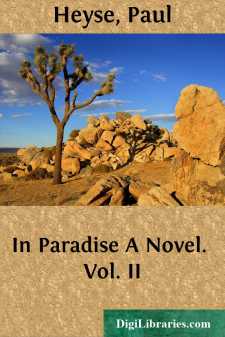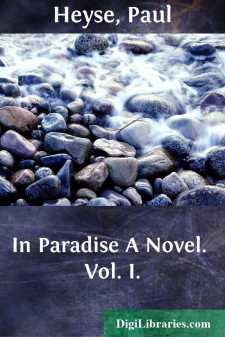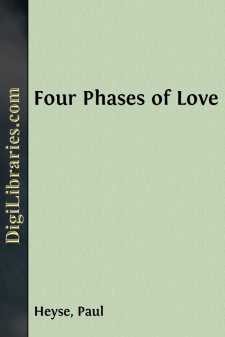Categories
- Antiques & Collectibles 13
- Architecture 36
- Art 48
- Bibles 22
- Biography & Autobiography 813
- Body, Mind & Spirit 142
- Business & Economics 28
- Children's Books 17
- Children's Fiction 14
- Computers 4
- Cooking 94
- Crafts & Hobbies 4
- Drama 346
- Education 46
- Family & Relationships 57
- Fiction 11829
- Games 19
- Gardening 17
- Health & Fitness 34
- History 1377
- House & Home 1
- Humor 147
- Juvenile Fiction 1873
- Juvenile Nonfiction 202
- Language Arts & Disciplines 88
- Law 16
- Literary Collections 686
- Literary Criticism 179
- Mathematics 13
- Medical 41
- Music 40
- Nature 179
- Non-Classifiable 1768
- Performing Arts 7
- Periodicals 1453
- Philosophy 64
- Photography 2
- Poetry 896
- Political Science 203
- Psychology 42
- Reference 154
- Religion 513
- Science 126
- Self-Help 84
- Social Science 81
- Sports & Recreation 34
- Study Aids 3
- Technology & Engineering 59
- Transportation 23
- Travel 463
- True Crime 29
Barbarossa and Other Tales
by: Paul Heyse
Description:
Excerpt
I had only intended to spend one day up in the mountains, and this one day grew into two weeks, which I found pass more rapidly in that high-perched ruinous nest on the confines of the Albano and Sabine range--the name I will not give--than was often the case in the whirl of great cities. What I actually did with myself during the sweet long days I hardly know how to tell. But in Rome a mighty hunger after solitude had fallen on me. I could satisfy it here to the full. It was early spring-time, the leaves of the chestnut trees shone in luxuriant freshness; the ravines were filled by the song of birds, and the murmur of brooks; and as of late a large body of banditti who had rendered this wild district insecure, had been in part captured, and in part driven into the Abruzzi, it ensued that a lonely wanderer might without any apprehension climb the remotest crags, and there give himself up undisturbed to profoundest meditations.
From the first I declined all intercourse with the German artists, a good number of whom had taken possession of both miserable inns the village possessed, and as to the desire of every now and then hearing one's own voice, which impels hermits to converse with their domestic animals, I could gratify it quite sufficiently within my own walls. For as it happened I lodged with the apothecary, and he had the utmost indulgence for my very defective Italian. True he indemnified himself for his outlay in patience by not unfrequently taking advantage of mine, for as soon as the first shyness had worn off, he showered a whole cornucopia of his own verses on me, confessing that despite his fifty and five years he was still unable entirely to shake off this childish malady. "What would you have?" he pleaded, "when at evening I step to my window and see the moon coming up behind the rocks, and the fire-flies on the wing about my little garden,--why I must be a brute if it does not set me off poetising." And indeed he was anything but a brute this good Signor Angelo, whom owing to a natural tonsure--a rim of black hair still circling his smooth bald head--his friends were wont to nickname Fra Angelico. He had never indeed left his native place more than twice in his life, nor on either occasion gone further than Rome. But then Rome is the world, he would say. He who has seen Rome, has seen everything. And forthwith he proceeded to speak of everything, partly according to the very miscellaneous and chaotic knowledge he owed to a few books accidentally picked up, partly from the audacity of unbridled poetical fancy. Of all the worthies who according to old Italian custom were wont to gather at evening in his apothecary's shop: priest, schoolmaster, surgeon, tax-gatherer, and a few unofficial well-to-do proprietors, whose faces beamed with the profits of their rich olive and vine yards,--of all these notabilities not one ventured to contradict Fra Angelico, not at least, when previous to one of his longer harangues, he polished his large silver spectacles on his coat-sleeve and began, "Ecco signori miei, the matter stands thus." But all the same he was the best and most harmless creature in the world, and the most amiable landlord one could desire, provided one had no wish beyond a hard bed, and two ricketty arm-chairs! He was certainly fond of me, although, or perhaps because he had not the faintest idea that I was a brother poet. I was discreet enough to confine myself to playing the part of a grateful public, and it was not until after the four-and-twentieth sonnet that I would gently lay my hand on his arm and say, "Bravo, Signor Angelo! But I fear this is too much of a good thing. Your poetry, is you know, potent, and flies to the head. To-morrow you shall fill me up a new flask from your Hippocrene." Whereupon with the most good-humoured look imaginable he would close his volume and say, "What avail if I read you to sleep, night after night a whole year through?...


